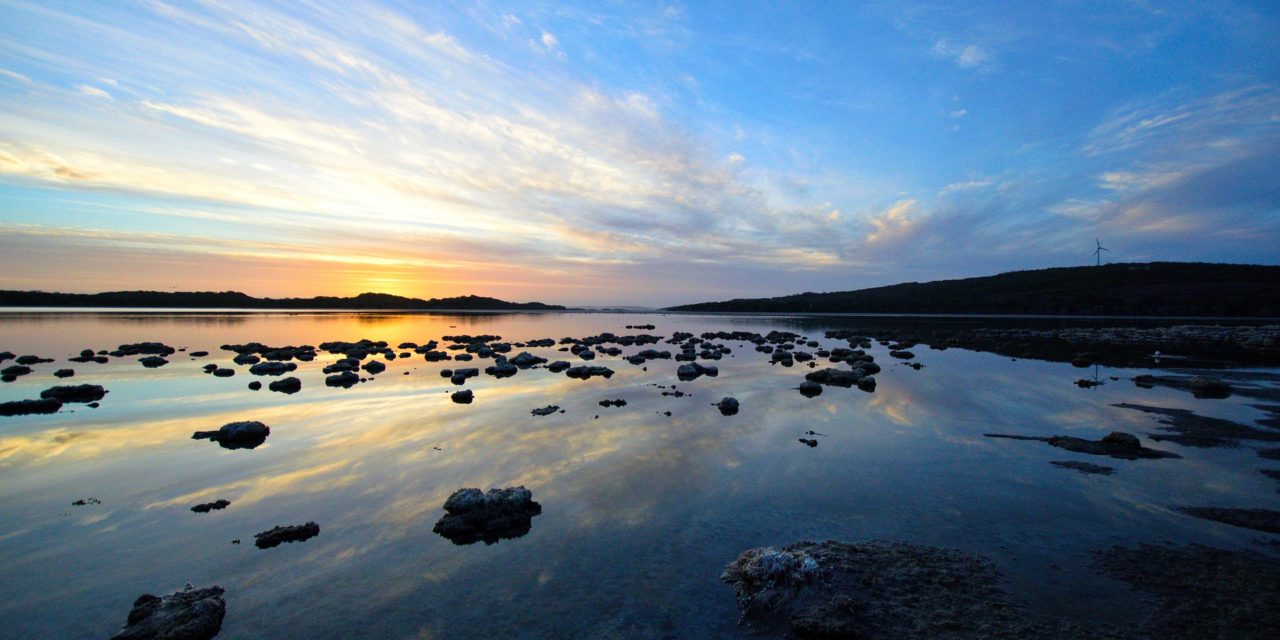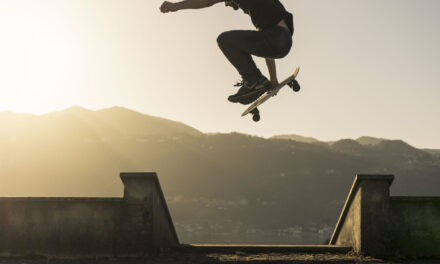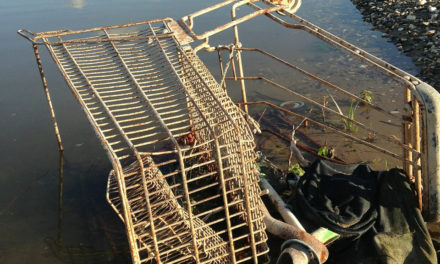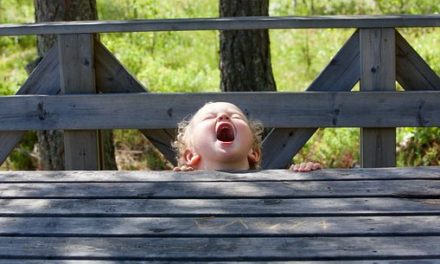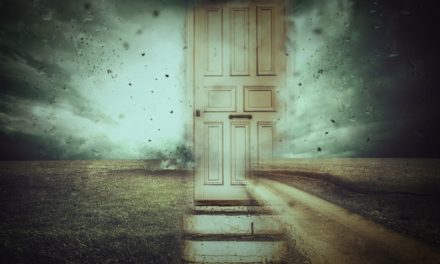“Don’t wear your seatbelts if you don’t want to,” our driver, Jason, says as he stands by the car and tosses magazines and food wrappers from the back seat into the trunk. “Personally, I don’t believe in them.” He waves us into his sand-colored hatchback. We scoot across the torn upholstery, and he points to the exposed metal ceiling. “Basically,” he laughs, “this whole thing’s held together by duct tape.” As we jolt out of the Bangor bus depot, he catches my eye in the rearview mirror. “Imagine if your car falls off a cliff into the ocean. Would you rather be strapped in, helpless? Or swim free and try to make it to shore?” Though I nod my head, assenting, I glance down at the buckle stretched tight against my jeans, grateful for its presence.
In the forty-minute drive to Trenton, Jason tells us about growing up in Down East Maine. How he’d fished in the lakes for smallmouth bass, dropped out of high school, worked in a quarry. Later, he’d turned to lobstering. He’d liked the work. Liked the rhythm of it. “Had to quit, though,” he says. “Paid only a dollar a pound. Plus, the water’s too warm; they’re harder to trap.” I shake my head sympathetically. Quietly he adds, “I appreciate your business. I’m a single dad.”
My son sits next to me, his long hair hiding his thin face and shoulders. Silently, he nudges me and points to an osprey flying far above the horizon. I tilt my head to gaze at the soaring bird. Jason catches the subtle exchange. “You like raptors?” My son musters a nod. Jason motions toward some fields. “They nest somewhere over there, I think.” While my son studies the tree line, Jason turns to me, his voice low: “How old is your son?” He’s twelve, I say. “My daughter’s eleven,” he beams. “Light of my life!” He tells me about how she loves music, how she sings and dances, how she teases him mercilessly. Then his voice hardens. “Turns out she has a learning disability. Delayed motor skills, too. Her frickin’ mother did drugs while she was pregnant. She knew better! Damn well knew the dangers, but she did it anyway.” He explains he’s trying to get his daughter some intervention, some therapy. But he fears it may be too late.
The GPS directs us down a thin gravel drive. We find a line of tiny cottages, painted blue. Jason chuckles. “These still here? I remember them from when I was a kid.” We step out from the car. The wind has picked up, gray clouds closing in. As my son and I hoist our bags, the first drops begin to fall. “Tomorrow, you two should walk down to Thompson Island. Take off your shoes, let the baby crabs nibble your toes.” Then he tells of another place—a hidden cove where we can find sea glass. “You’re not supposed to take the glass,” he whispers, “but I let my daughter take it, I let her fill a bucket. You should let your son take some, too. Who knows how long it’ll be there?”
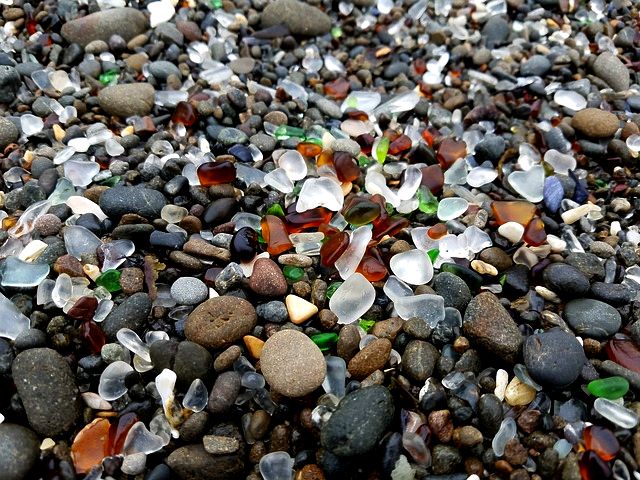
Inside our cottage, there’s room for two beds, two chairs, and a small table. The damp walls are lined with fake wood paneling and pictures of lighthouses. “It’s perfect!” my son declares. We bump fists and dance around the room. Then we open the windows and stretch out on the faded quilts, feeling the breeze wash over us, listening to the falling rain.
When I awaken, the sky has darkened. My son is arranging camping gear on the shag carpet. “Hungry?” I ask. He nods emphatically. Grabbing my raincoat, I head out. The nearest store’s a mile down the road. As I walk along the shoulder, cars parade by, spraying me with grimy rain. I pass a roadside inn, a mini-golf course, then a series of lobster pounds, steam rising from rusted oil drums in the empty yards. One yard displays whimsical welded sculptures—dinosaurs, mastodons, prehistoric creatures—that shine like flames in the setting sun. When I reach the store, the lights flicker. “We’re about to close,” the cashier warns. She points to her watch and raises her brow. I rush and grab a few items, thanking her as she locks the door.
Back at the cottage, I show my son the loot: blueberries, pumpkins seeds, instant mac-n-cheese. We eat dinner on the bed while we watch TV. It’s Ellen DeGeneres in Game of Games. Three contestants stand on a precipice, giant pillows strapped to their backs. Behind each, an enormous cowboy boot is menacingly positioned. If contestants don’t know the lyrics from popular songs, their boot is released and they are kicked, airborne, into a pit of bubbles. As they fall, the camera zooms in on their faces, revealing a mix of elation and fear. Watching, we can’t help but to laugh, even when the winner discovers to her surprise that she, too, despite knowing everything, will be hurled headlong into the abyss.
Growing up in the ’70s, I lived in the city. Most of the downtown stores were boarded up. Graffiti plastered the walls of our school. We played kickball on the cracked concrete and built a clubhouse behind a burned-out building. Shows like Grizzly Adams and Little House on the Prairie intensified my longing for woods and streams and wildlife. I’d dream of a leafy curtain I could peel back to reveal a forest grove. There’d be a pond with birds and deer and rabbits, lush plants, and a bed of moss. When feeling trapped by the dreary city, this vision would give me respite and hope——a sense that one day it could be my home.
The next morning, we slog through the puddles along Route 3, hunched under the weight of our overstuffed backpacks. When a blue-striped bus stops to let us board, the elderly driver clicks his tongue. “Good thing I saw you. Not often people walk along this stretch.” Sitting behind him, I marvel at the endless caravan. “Yes, so many cars,” he mourns. “Last week, three teenagers died,” He speaks softly, his hands slightly tremulous, his gray eyes weary. After crossing the narrows, we turn onto a rural byway. A young couple gets on with their dog. Then, a kid with a fishing rod. We pass small homes selling firewood, abandoned fish shops, long groves of variegated trees. Some of the trees are grey and withered. “Red scale,” our driver explains. “It’s killing our pines.” He tells us how when he was a boy, a great fire ravaged the island. It raced through the forests toward the sea. Most people fled, and animals found refuge in lakes and ponds, but the ancient trees burned to the ground. Everything was charred. Eventually people built new homes. They hoped the majestic spruce and firs might grow back, too, but they never did. New plants appeared instead. Pines but also oaks and maples. Deciduous trees that worshipped the sun. The changing of the guard.
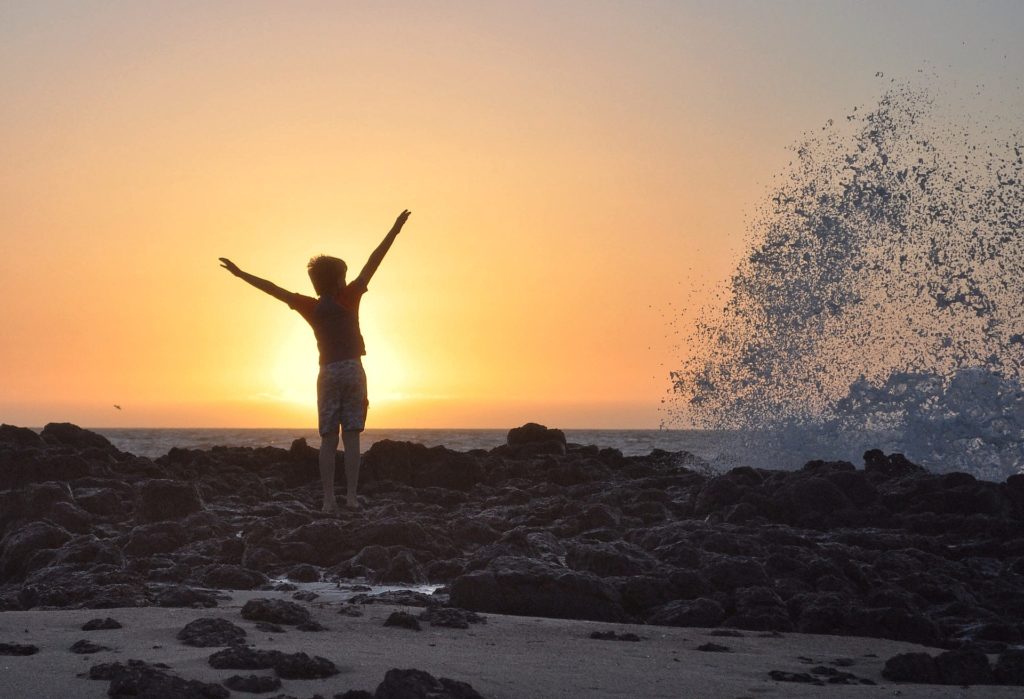
At our campsite, we’re greeted by a burly man with a white beard and ponytail . He’s been cleaning fire rings and is covered in soot. “What’d you guys do? Hike in from the road?” When he hears we’re touring Acadia by foot, he lets out a whoop. “We love folks like you!” He tries to give my son a high five, but my son quickly turns. Smiling at the disconnect, I ask him about local wildlife. “Well, there’s possum,” he says, “also weasels, foxes, raccoons, white-tailed deer. No moose on the island, save chance visitors. Bears, yes, but rarely seen.… Glancing at our packs, he pauses, then jumps into his pickup truck. “Hold on, got something for you!” Ten minutes later, he’s back with a large black box. We chain it to our picnic table. “Don’t think you’ll see bears. But put your food in here, it’ll be safe at least from the smaller critters.” Then he hops into his truck and drives away. That night, after a day of walking the trails, recording birdcalls, and identifying frogs, my son and I add lemonade powder to our canteens and eat cheese and bread with dried apples. We lie in our tent with the flap open, listening to the coming wind, the creaking of the pines.
My son is like me. In that he loves nature. In that he feels a connection. But for him, I think, it runs deeper. The last of five children, he was born into my later years and thus has spent more time in solitude. This seems to suit his spirit. Observing birds and insects in our small backyard, he’ll record their behavior in penciled notes and sketches. He loves to visit our nearby woods, where he delights in multicolored fungi and the soft prints of Fowler’s toads. He’ll chew on spice bush and identify the neatly spaced holes of yellow-bellied sapsuckers. For an hour, once, he knelt solemnly alongside an eastern box turtle [KB42] burying her eggs. When his sisters left for college, their room became his lab, a place to curate his discoveries: ancient leaf fossils, insects preserved in alcohol, delicate skeletons of birds and rodents, the skull of a magnificent deer. He treats these remains with reverence, yet without the veil of my sentimental vision. In this, he seems braver than I, accepting nature “red in tooth and claw,” accepting the finiteness of life.
The following morning is warm and misty. The bus drops us off by the wall of the sea. Here the surf for centuries has pounded the cliffside, depositing smooth white cobbles in neat partitions, dividing the upland forests from the marine biome below. Interspersed among the cobbles are tidal inlets where my son crouches, observing amphipods, snail eggs, brown kelp. As the tides ebb and flow, he stays there, still as the stones, silently attuned to the small worlds within.
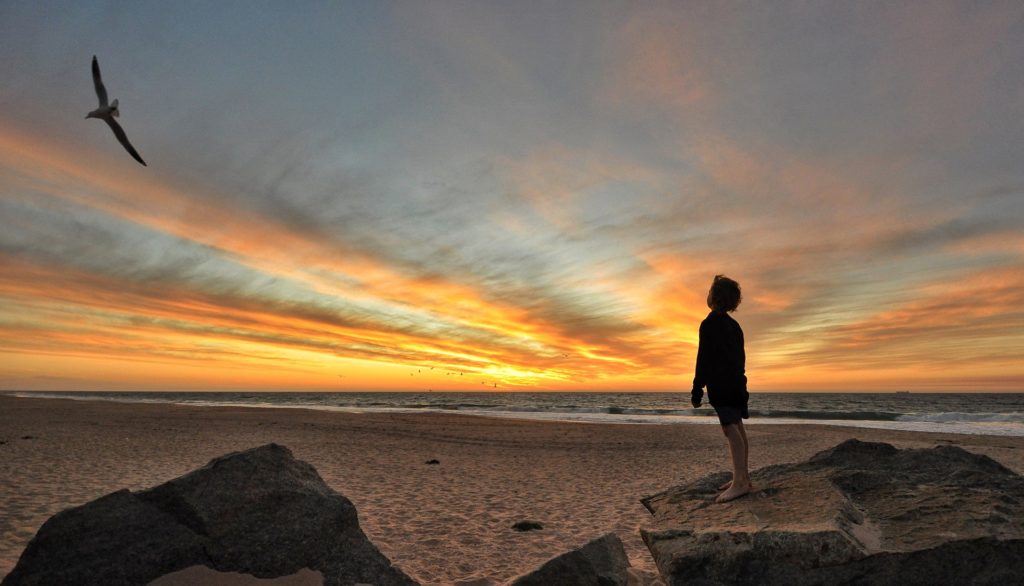
An old woman with a headscarf and crystal ball sits at a table next to a lobster, predicting the poor creature’s fate: “I see a pot of boiling water, a nutcracker, and melted butter.”
Two lobster detectives investigate a restaurant “crime scene.” Examining the crustaceous remains on a dinner-plate, one declares: “Boiled alive and eaten like the others. Looks like a serial killer’s loose.”
A giant lobster stands over a stove, lowering a human baby into a steaming cooking pot. “It’s not screaming,” he assures an on-looking lobster, “It’s just the air escaping.”
We laugh at these cartoons taped to the open glass door. It’s raining this morning, and the small store is packed. Jostling fellow tourists, we browse through racks of souvenir mugs and displays of blueberry jam. We try on moose hats with plush antler appendages and smile at sweatshirts festooned with bleating sheep: “Baah-Haa-Baah.” Many of the shops carry identical trinkets—chocolate “moose turds,” lighthouse snow globes, lobster-claw keychains. Outside, we join the dripping hordes trudging down Main Street. Passing ice-cream parlors, seafood bars, and posh boutiques, our tramping feet cast a pall-like spell. In the puddles, our feet blur and blend. I hear them and I see them. I am part of them. Like lemmings, I think. All of us. Marching headlong into the sea. Like lobsters in a communal pot. Not yet feeling the rising heat.
At the end of Main Street lies Frenchman Bay. Rocky islands jut out from blue-gray waters, only to disappear again into the mist. The wet breeze at our back, my son and I walk along the shore path. We stop to read the chalkboard signs tacked to the iron rails—“Puffin Cruise,”, “Whale Watching Tours”—the hand-blocked letters slowly vanishing in the spattering rain. Beyond the pier, we scale the fence and lower ourselves to a narrow stretch of shore. The rain is letting up, the tide low but turning. On the high boulders, I lie on the wet rock, welcoming the sun. My son ventures farther down, toward the sea. Nimbly, he leaps from rock to rock. He stops and crouches, then leaps again, careful to avoid the slimy, green sea lettuce—less fearful of slipping than of damaging the organism. Descending lower, he finds rockweed, the supple brown stems branching into buoyant globes. Lower still is red algae. Requiring less light and more time in the sea than the species above, its deep maroon is just thinly visible now in the flooding tide. From the sea to the cliffs, layers of muted color wrap like ribbons against the grey-brown shore. This is the intertidal zone—each band of species meeting strict demands of temperature, moisture, light, and air. Surveying the grand expanse, my son climbs back toward me, stopping to rest just below my perch, where barnacles abound.
These gray brittle arthropods, cemented onto rocks, their encased heads down, their sharp hinds protruding, they’ve always seemed more of a nuisance than a wonder, thorns to avoid lest they scrape my feet and leave me bleeding. But my son—he sees them differently. He sees what is hidden, and what is yet to come. He explains how barnacle shells will expand over time, but the animal inside will never leave its home. Though enclosed within its carapace, the barnacle is waiting. When the water returns, the calcareous plates will open, and the creature’s long thoracic legs will slip out, waving plankton into its shell. My son sits on the rocks below, his arms hugging his legs. I read my book. An hour passes, then half an hour more. The water continues to rise. It reaches my son’s shoes, encircles his rock, then covers the barnacles before him. He calls me down to witness. Peering close, my aging eyes faintly make out the feathery cirri waving in the sea. I think of how some of us can wait, and some can wait longer—in the end, however, the sea comes for us all.
When my son was in pre-school, his teacher called me, concerned. Apparently, he wasn’t talking. He talked at home just fine, within our boisterous household, but at school he was silent. As weeks passed, he made a few friends to whom he’d whisper. Testing diagnosed him with selective mutism. Over the years, his communication circle widened. He could respond to teachers. He’d speak to more classmates. But his words truly flowed only in certain settings—in friends’ homes, within small groups at school, in the family car, outside in nature. If approached in public, he might freeze. But in the woods or along a mountain stream, he’d joke and laugh, have deep conversations. His interchange would extend toward other species, too. At a marsh’s edge, he’d rival spring peepers; near a grove of cypress, he’d converse with the birds.
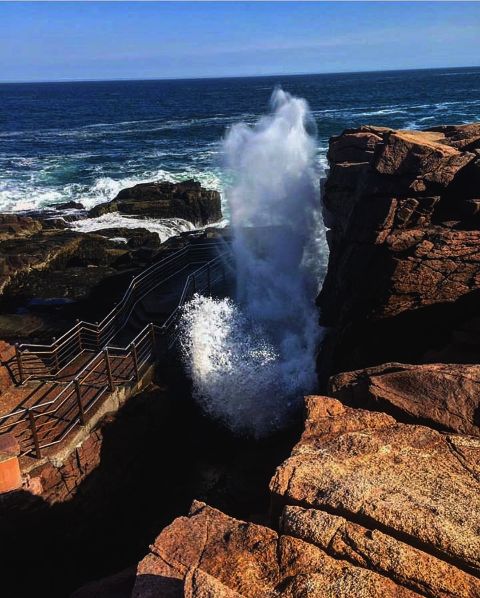
For the next two days, the rain holds off; we explore attractions along Park Loop Road. At Thunder Hole, we wait in line to feel the boom as the waves sweep into the hollowed stone. At Otter Cliffs, we open our arms to 100 foot sprays. At Jordan Pond, the water’s startlingly clear, but the crowds are so thick, the tourists bedecked with the latest high-tech accoutrements, that we quickly abandon recommendations of tea on the lawn and retreat, instead, to the quiet shadows of our camp.
The second day we fare better at Sieur de Monts. The tourists visiting the Wild Gardens seem more our kin: botany enthusiasts who kneel and jot down Latin names in dog-eared notebooks. The gardens are divided into zones reflecting the island’s ecosystems: mixed woods, meadows, roadside, mountain, beaches, brookside, heath, marshes, conifers, bog. In each garden, we admire carefully cultivated species. Hemlocks and ferns. Crowberry and columbine. Silverweed and beachgrass. Buckbean and blue flag. Pitcher plants and orchids.
The adjoining nature center has a new exhibit, all about climate change. Poring through the interactive maps and videos, we hear how rising carbon dioxide levels increasingly impact the island. Summers growing longer and drier. Seasonal changes causing ecological mismatches (between plants and their pollinators, between wildlife and their vegetative food sources). Heron and osprey losing their wetlands. Mountaintop trees dying in the heat. Ocean acidification killing fish and weakening the shells of mollusks and crustaceans. Rising seas displacing puffins, loons, and terns. Violent storms and coastal flooding demolishing homes and crops and businesses.
Each display outlines a looming threat. But one points out the steps we can take, the choices that still face us. Looking around, I’m surprised how few visitors stop to view the exhibit. Most dart in to purchase National Park passes for their cars. I’m surprised also how, in light of current administrative policies, such a display would be allowed. “I know,” a ranger tells me with a side glance. “We’re all wondering how long it will stay. They’ve already taken down links from our website.”
Behind the center, we find a small building in the woods. A thin man with glasses ushers us in. He explains that this museum is devoted to preserving the history of the Wabanaki—the People of the Dawn. The man shows us harpoons, knives, and needles—some thousands of years old—and dioramas depicting wigwams, spear fishing, birch-bark canoes. He shows off baskets made from ash wood, explaining how in the Wabanaki creation story, the first people emerged from an ash tree and how even today, ash is central to their livelihood. The trees now face extinction, though, by an invasive green beetle. The man shakes his head, then takes off his glasses to wipe them clean.
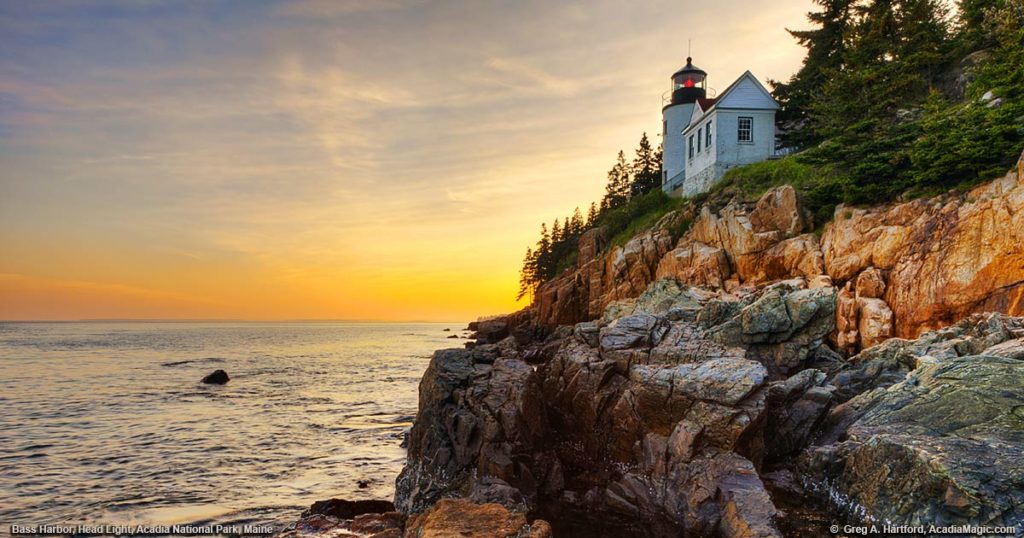
That evening, my son and I visit the Bass Harbor Lighthouse. The rocks are rough and slippery. Amid the salt spray, we sit and witness the soft reddening of the sky. We see the tower’s deepening silhouette. Then, the signal. Three flashes of red, one moment of darkness. The code repeats, interminably, dispatching its warning to nearby boats, to the neighboring islands, to the vastness beyond.
When I was young, I, too, didn’t speak. I’d nod and smile and look at my shoes, but only to a few outside my family would I whisper a word. Shy was the term we knew then. “Don’t bother her, she’s shy!” my classmates would proclaim on the playground, their arms draped protectively around my shoulders. Thus, I felt safe. But I also felt the distance. I felt like I was locked inside a transparent bubble where I could watch and listen and move about but my voice couldn’t reach the world outside. I remember wanting to punch through that invisible barrier, but I learned that an escape could not be forced and that walls were not glass—they could not shatter—but rather thick plastic which would only dissolve slowly, over time.
Folding clothes at the laundromat, we see the sky darken. We shove our shirts and underwear into our packs and hightail it to the bus. We’d hoped to spend our last evening on the island near the Village Green—enjoying a hot meal before departing tomorrow. However, these black clouds seem ominous. Streams of water roll down the windshield. We hear the first rumble. Two miles from the campground, I see a small country inn. Taking a chance, I call to the driver. He lets us off, and we run across the road, the white clapboard house glistening in the darkening rain.
The inn’s front room is an old-fashioned store, with shelves of foodstuffs and jars of candy. A gray-haired woman stirs a pot on the stove. Initially, she shakes her head when we ask about rooms. Then she looks down at our rain-soaked packs, and her face changes. “Let me see what I can do.” She slips behind a curtain then returns, followed by a thin, stooped man. This is her brother, she explains. He owns the place. We can have his room. He’ll bunk in the RV out back. When we protest, he waves his hand to silence us. The woman smiles at my son and asks his name. At his muteness, she glances at me quizzically. He’s slow to warm up, I explain. “Well, I have a way with kids. I’m sure he’ll talk to me before long.” “Talking’s overrated,” the man quietly interjects. Then he disappears behind the curtain.
The brown-walled room has paintings of hunting dogs and stacks of cigars. While my son takes a shower, I walk downstairs. Clam chowder simmers in the pot. A chalkboard sign promotes twenty-dollar lobster dinners. No vegetarian options. I pause, then order a serving of each. Back in the room, we sit on the floor with a towel between us. As the storm rages outside, the soup brings comfort. So do the buttered corn and rolls. Next, the coleslaw. All that’s left is the lobster. We admire its smooth red exoskeleton: its carapace, antennae, legs, claws, and tail; then, with some trepidation, we ceremoniously begin to tear it apart.
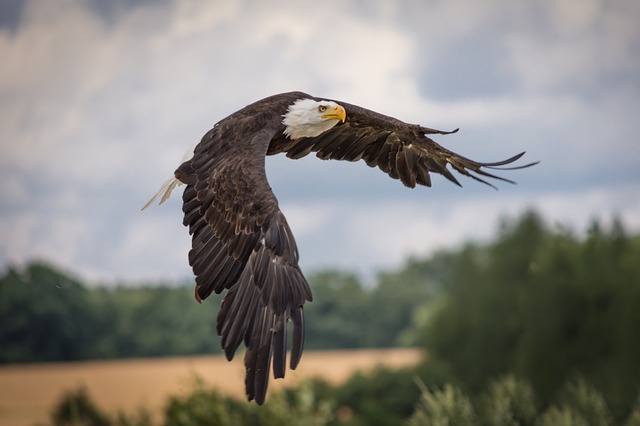
Our boat’s first mate shouts out landmarks as we speed through Frenchman Bay. “Woo-hoo,” he hollers when my son spots an eagle, “You have mighty good eyesight.” He claps my son’s shoulders and points to the right. “You want that island? You can buy it,” he teases. “Only 1.5 million dollars. Make a nice home for you and your mom.” His voice flies into the wind. “Long as it lasts, anyhow.”
The bird turns twice before settling down, then stares at us with dark, unblinking eyes. He’s flown to this rock where my son and I sit, overlooking the peninsula’s western shore. My son identifies it as a juvenile herring gull, tan with deep brown speckles. Just inches away from my son’s sneakers, it rests there, unmoving, while we likewise sit, in this golden hour, watching the sun sink toward the sea.
“So fleet the works of men,
back to their earth again;
Ancient and holy things fade like a dream.”
— Inscription inside the Abbe Museum in Sieur de Monts Spring
Reading books by flashlight, we hear a car pull in to the neighboring campsite. Suddenly, a commotion. The family’s tent had flooded in an afternoon downpour. The parents grow increasingly agitated as they discover more and more items soaked through. “Oh no, my sweatshirt.” “Darn it—the pajamas.” “Shit—the sleeping bags.” The kids seem bemused, chatting away, until the parents yell in slow, guttural syllables, “We are having a crisis. You guys don’t get the seriousness. All we’re asking is for the two of you to be quiet. Is that too much to expect?” Although we know it’s mean (especially since our own gear had been protected by our carefully-strung tarp) my son and I can’t help but laugh into our pillows. Twenty minutes later, we hear the family pack up their stuff and drive away.
Inside our tent, we take turns telling stories. My son invents one about miniature aliens who roam the Earth, observing human life; eventually they’re discovered, and a fantastically complex chase scene ensues. I spin a tale of a World War I veteran who, exactly one hundred years ago, in these very woods, lived alone in a cabin after having lost an arm in battle. One day he sees a moose with just one antler peering at him through the window, an encounter which emboldens the soldier to reconnect with his family and his town. My son chuckles at my heavy-handed attempt to build suspense. We turn off the lantern and listen, without speaking, to the echoes of the night.
Some hours later, I’m awakened by rogue mosquitoes. The buzzing grows fierce, then faint, then fierce again. As I fade back into sleep, I imagine throngs of emerald ash borers, in tree after tree, all throughout the forest. Alien invaders, they grow invisibly beneath the bark, then chew their way to the surface. Suddenly, I’m chewing alongside them, our strong jaws piercing the virgin sapwood, devouring it slowly in myopic irrevocable mouthfuls of greed.
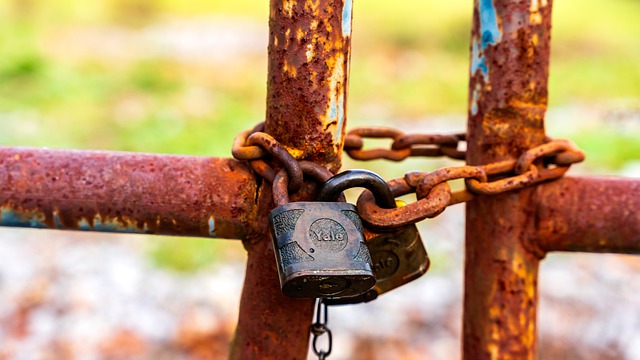
The dirt road curves and dips, then grows narrow, swampy, and full of weeds. We come to a rusted metal gate, which we climb over, dropping our packs down before us. Suddenly a dog barks, and from around the bend a pickup truck emerges. “Hey,” a man with a beard calls out. “Thought I’d offer you a ride, since you’re on foot and all.” The truck is filled with tools and lumber, but he invites us to ride on the open tailgate. The dog jumps in, too. As the truck bounces down the rutted, marshy road, we hold on to each other, as tight as we can.
Abandoned for more than a decade, this property was to be sold as subdivisions, but a wealthy conservationist swept in to protect it. Pledging to open it as an eco-friendly campground, she’s hired Graham to tame the encroaching wilderness. The undertaking seems huge, with little urgency to finish. However, in the interim, she welcomes occasional campers who are willing to tote in their water, pack out their trash. Graham swings the truck to the right, stopping at the edge of a thicket. We jump off and follow him into the woods. Suddenly a grand panorama—–rocks and sky and ocean without end.
We set up our tent where the pines meet the sea. The air is sweet and musty—the fragrance of new life and decay and something else, beyond. Tomorrow is the Fourth of July. It will be hot and muggy. We’ll hike to town for water and supplies. Returning, we’ll grill vegetables on the sea-enveloped rocks. Eagles will roost in the pines above, and we’ll watch the sunset until the stars come out, brighter than we’ve ever seen. All night, we’ll keep our tent flap open, breathing in the pine-salt air, listening to the music of the tides. Buoyed by the glow of the people we’ve met, by the kindness shown by strangers, we’ll rest serenely, wishing we might stay here forever, or if not forever, then until we are kicked, unceremoniously, into the rising sea, into the abyss that awaits us all.

First published in Mount Hope spring 2020

